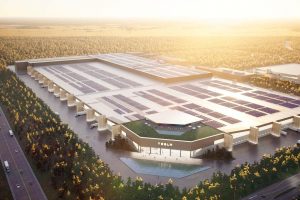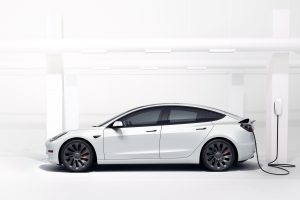Many of Tesla’s battery cells come from third-party manufacturers such as Panasonic, LG Chem, and CATL. According to a new study from Cairn Energy Research Advisors, Tesla is paying considerably less per kilowatt-hour than its rivals because of the large cost at which it buys these cells.
Since battery packs account for the majority of an electric vehicle’s cost, cells are the most important factor in price control. Like a wholesale grocery store like Sam’s Club or Costco, the more a business buys, the less it costs per unit. In this scenario, electric vehicle companies compare their prices by kWh, and Tesla, according to Cairn, has a commanding lead in the sector that will last for the next decade.
“Tesla is definitely putting the hammer down on the accelerator pedal. They see this as the crucial period, and they’re building out their capacities,” Cairn’s Managing Director, Sam Jaffe, explained. When it comes to Tesla’s production plants in Berlin, Shanghai, and Austin, it’s clear that the company is ramping up production to cut costs and produce the most affordable (and highest-performing) electric cars on the market.
Tesla pays an average of $142 per kWh for cells purchased from the three suppliers listed above, according to Cairn’s study. Meanwhile, according to the firm’s report, companies like GM are paying $169 per kWh, while the industry average is about $186. Furthermore, Tesla’s packs cost $187 per kWh on average, compared to $207 per kWh for GM and $246 per kWh for the industry average.
How has Tesla been able to pay so little per kWh compared to its competitors? Elon Musk and his team of highly-trained engineers and entrepreneurs, according to Cairn, have done everything possible to reduce the cost of Tesla vehicles, a strategy outlined in the Tesla Master Plan.
“Everything is focused on cost. The lower the cost, the more affordable the cars become,” Jaffe said, according to CNBC.
Tesla’s work is also far from complete. The company’s strategy to reduce battery costs by up to 54 percent was outlined at Tesla’s Battery Day event in September, where Elon Musk outlined the company’s plan to hit the elusive $100 per kWh price point, which is the widely-agreed upon price point that would equate EVs’ price to gas-powered vehicles. A strategy for mass-scale production, more affordable products, and innovative manufacturing methods was outlined. Tesla also intends to produce some of the cells in-house at its Kato Road factory.
Tesla’s advancements, according to Cairn, will keep it on top of the battery cell market for the next decade. Cairn claims GM is the true number two, despite some analysts predicting Volkswagen as the company to challenge Tesla.
Jaffe said:
“GM is fully committed and is taking this complete integrative approach which is going to allow it to be very close to Tesla, although the scale still isn’t in the same ballpark as what Tesla is planning.”





